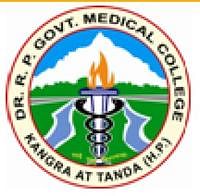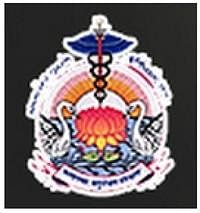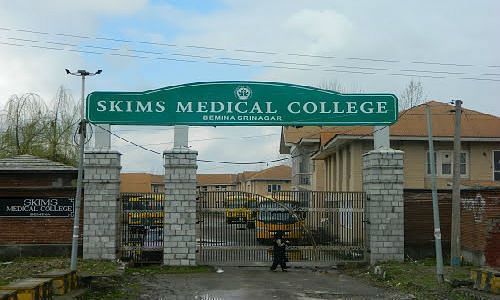DNB Syllabus and Subjects

DNB syllabus is divided into 6 semesters over 3 years and focuses on core clinical skills, advanced knowledge in the medical field, and conducting research. DNB syllabus is structured as per NBEM (National Board of Examination in Medical Sciences) 29 broad specialization across the modern medical field.
DNB core subjects include clinical study, research methodology, basic sciences, surgical skill concepts, etc. Students can also select elective subjects as per the specialization chosen such as clinical molecular biology, pain medicine, health policy and management, clinical oncology, and more.
DNB course curriculum helps students get practical training under the supervision of experienced professionals in accredited hospitals. The practical training focuses on building technical skills in understanding advanced Imaging Techniques, Minimally Invasive Surgery, Critical Care Medicine, and more
Table of Contents
Semester Wise DNB Syllabus
DNB semester-wise syllabus differs as per the specialization selected by the student, but there are few core subjects that students study irrespective of the medical field to understand the basics of the human body, disease mechanisms, drug actions, and more.
Students can also download the DNB syllabus PDF of various college’s official websites. A detailed view of the generic DNB syllabus is given below
First Year DNB Syllabus
DNB 1st year syllabus imparts basic knowledge about clinical skills, patient management techniques, research techniques, various ethical protocols and laws, and more. Below listed are common 1st year DNB subjects:
|
First Year Syllabus |
|
|
Basic Sciences |
Medical Ethics and Professionalism |
|
Clinical Methods |
Basic Surgical Skills |
|
Research Methodology |
Epidemiology and Public Health |
DNB Subjects- Core & Elective
DNB subjects help students understand the basics of medical principles and protocols, the social care aspect of patient care, recent advancements, and interdisciplinary knowledge to understand complex medical cases across different fields.
Below listed are a few core and elective subjects covered in the DNB syllabus:
DNB Core Subjects
Listed below are some of the core DNB subjects that the students study in first year as common subjects along with topics covered in each subject:
|
DNB Core Subjects |
Topics Covered |
|
Basic Sciences |
Cell Biology, Molecular Biology, Genetics, Biochemistry, Physiology, Microbiology, Immunology, Pathology, Pharmacology |
|
Research Methodology |
Study Design, Biostatistics, Research Ethics, Data Collection, Data Analysis, Literature Review, Writing Research Proposals |
|
Clinical Methods |
History Taking, Physical Examination, Diagnostic Techniques, Clinical Reasoning, Medical Ethics, Communication Skills, Patient Safety |
|
Medical Ethics and Professionalism |
Ethical Principles, Informed Consent, Professional Conduct, Patient Rights, Legal Issues in Medicine, Medical Negligence, Ethical Dilemmas |
|
Basic Surgical Skills |
Asepsis and Sterilization, Surgical Instruments, Suturing Techniques, Basic Surgical Procedures, Wound Management, Trauma Management |
|
Epidemiology and Public Health |
Disease Surveillance, Health Promotion, Disease Prevention, Public Health Policies, Health Economics |
DNB Elective Subjects
Elective subjects under the DNB syllabus differ as per the broad specialty chosen by students such as family medicine, community medicine, hospital administration, and more. The elective subjects in DNB are listed below as per the specialization:
|
Specialization |
DNB Elective Subjects |
Topics Covered |
|
Anaesthesiology |
|
Pain management, Pediatric and obstetric anesthesia, Critical care, Advanced anesthesia techniques |
|
Biochemistry |
|
Molecular diagnostics, Metabolic disorders, Hematology, Immunology, Endocrine system pathology |
|
General Medicine |
|
Geriatric care, Sports injuries, Infectious diseases, Autoimmune conditions, End-of-life care |
|
Pediatrics |
|
Neonatal care, Pediatric heart conditions, Neurological disorders, Endocrine issues in children, Adolescent health |
|
Community Medicine |
|
Public health, Environmental impacts, Health policies, Global health issues, Epidemiological methods |
|
Immunohematology and Blood Transfusion |
|
Blood transfusion practices, Coagulation disorders, Blood group systems, Blood bank operations, Emerging transfusion technologies |
|
Radiation Oncology |
|
Radiotherapy fundamentals, Cancer management, Advanced radiation techniques, Pediatric considerations, Palliative care |
Specialisation Wise DNB Syllabus and Subjects
DNB offers several specializations and the core subjects differ for each stream. Detailed below are some of the popular specializations and their corresponding course structure.
|
DNB Specialization List |
Subjects Covered |
|
Anaesthesiology |
|
|
Biochemistry |
|
|
General Medicine |
|
|
|
|
Community Medicine |
|
|
Dermatology, Venereology and Leprosy |
|
DNB Course Structure
The structure of the DNB degree is designed to offer students a practical understanding of this industry. The course is three years long and is divided into core and elective subjects.
The DNB syllabus course structure is given below:
- VI Semesters
- Core Subjects
- Elective Subjects
- Projects
- Thesis/Dissertation
- Seminar
- Clinical Rotation
- Final Certification
DNB Projects
Academic projects are a crucial component of the DNB course curriculum. Students can take their course project based on their area of specialization. Students need to submit the projects in their final year. The most common DNB project topics the students have worked on are listed below
- Conducting research on diabetes mellitus complications
- What is the role of postoperative pain management in recovery?
- Study on effectiveness of vaccination programs in preventing childhood diseases
- Difference between surgical vs. non-surgical treatment for ACL injuries
- What is the role of ultrasound in diagnosing abdominal conditions?
Note: For the detailed list of projects, DNB project PDFs are also available online.
Diplomate of National Board Teaching Methodology and Techniques
The teaching method is the most important component of a course's curriculum for understanding DNB. The most effective method of learning is through classroom instruction, thesis work, paper presentations, etc. The details of the various course methodology are given below.
- Lectures
- Class Participation
- Seminars
- Guest Lectures
- Internships
- Group Discussion
- Lab Sessions
- Simulation Training
DNB Books
DNB books may differ as per the specialization selected by the student such as neurology, general medicine, pathology, and more. DNB books are available to students in paperbacks and PDF formats from a variety of authors and publications.
Some of the common DNB books are:
|
Books |
Authors |
Topics Covered |
|
Davidson's Principles and Practice of Medicine |
Stuart H. Ralston, Ian D. Penman, Mark W. J. Strachan, Richard Hobson |
General Medicine, Clinical Features, Investigations, Management of Diseases, etc. |
|
Textbook of Medical Physiology |
Guyton and Hall |
Cell and Molecular Biology, Cardiovascular Physiology, Respiratory Physiology, etc. |
|
Kumar and Clark's Clinical Medicine |
Parveen Kumar, Michael Clark |
Clinical Medicine, Diagnosis, Treatment Guidelines, etc. |
|
Essentials of Medical Pharmacology |
K. D. Tripathi |
Pharmacology, Drug Mechanisms, Adverse Effects, Clinical Pharmacology, etc. |
|
Netter's Atlas of Human Anatomy |
Frank H. Netter |
Human Anatomy, Skeletal System, Muscular System, Nervous System, Cardiovascular System, etc. |
Top Diplomate of National Board [DNB] Colleges
DNB Fee Structure
FAQs on DNB Syllabus and Subjects
Q: What DNB subjects are included in 1st year?
Q: How is DNB syllabus assessed?
Q: What is DNB general medicine syllabus?
Q: What is the structure of DNB syllabus?
Q: What is the difference between the training aspect of the DNB and MD curriculum?












